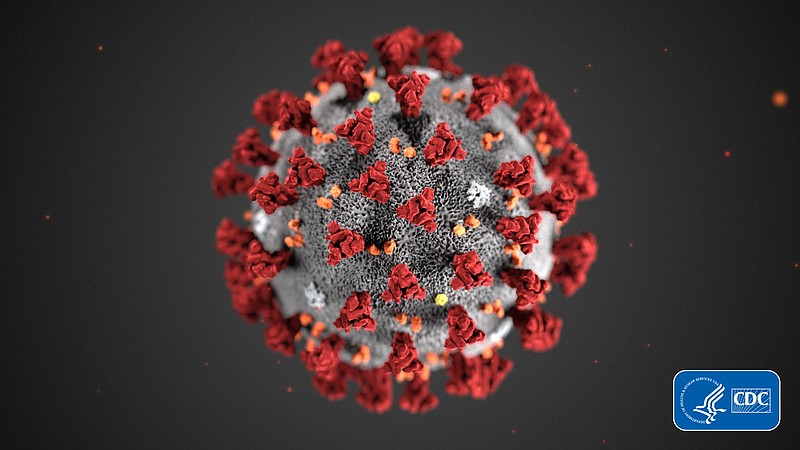As a service to our readers, The Sentinel-Record publishes updates released by the city of Hot Springs and the state of Arkansas.
The Arkansas Department of Health is no longer reporting confirmed and probable cases separately or updating its stats on the weekend. The following stats were posted Tuesday on the Health Department's website:
• 367,007 cumulative cases, up 1,875 from Monday.
• 1,151.14 rolling seven-day average of new cases, up 57 from Monday.
• 3,224,165 PCR test reports, up 11,891 from Monday.
• 8.8% cumulative PCR infection rate, no change from Monday.
• 11,475 active cases, up 970 from Monday.
• 2,763,160 vaccine doses received, up 22,470 from Monday.
• 2,236,333 doses given, up 7,508 from Monday.
• 815 hospitalizations, up 49 from Monday.
• 131 cases on a ventilator, up seven from Monday.
• 313 ICU admissions, up 22 from Monday.
• 6,007 deaths, no change from Monday.
• 2,095 nursing home deaths, no change from Monday.
• 11,234 cumulative cases in Garland County, up 60 from Monday.
• 41.14 rolling seven-day average of new cases, up 4.43 from Monday.
• 125,312 PCR and antigen test reports, up 466 from Monday.
• 8.8% cumulative PCR infection rate, no change from Monday.
• 378 active cases in Garland County, up six from Monday.
• 10,588 recoveries in Garland County, up 54 from Monday.
• 268 deaths, no change from Monday.
The University of Arkansas for Medical Sciences Fay W. Boozman College of Public Health warned last month that the pandemic is still "smoldering" in Arkansas. The report it released Tuesday said the smolder has become "a raging forest fire that will grow in size and strength."
The conflagration has raised the state's rolling seven-day average of new cases 142% since the start of the month, putting it on a trajectory that could push the infection curve to levels not seen since last winter's peak.
"Because the delta variant is more infectious, our opinion is Arkansas may exceed 3,000 new daily infections, the high point of the December/January surge, very quickly," the report said. "At that point, hospitalizations in the state will begin to challenge the capacity for the system to handle patients."
The college said recent data showed more than half of the new cases require hospitalization, almost doubling the ratio from the winter. Hospitalizations have increased 132% since the start of the month.
"For every 1,000 daily COVID-19 cases, the daily hospital census will increase by 550 patients," the report said. "Of these 550 patients, current data suggest a third will require intensive care. As we approach 3,000 daily cases, the average at the height of the last surge, the daily hospital census will be approximately 1,650, of whom 550 will require intensive care."
Citing research from China, the report said delta's viral load is 1,000 times higher than the alpha variant that first appeared in the United Kingdom. On average, people infected with the alpha variant transmit it to 2.7 people. A person infected with the delta variant infects six people on average.
The report warned Arkansas has a tough road ahead.
"Even if every Arkansan was vaccinated today, the effect of that event on the number of new infections and hospitalizations may not be observable for six to eight weeks," the report said. "As has been widely reported in the scientific and mass medias, one dose of the two-dose COVID vaccines have limited value. The month between the first and second dose, therefore, remains a time of high risk. Even after a second dose, two weeks is needed to achieve full immunity."
